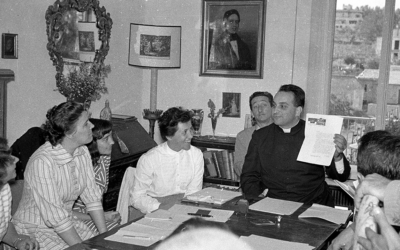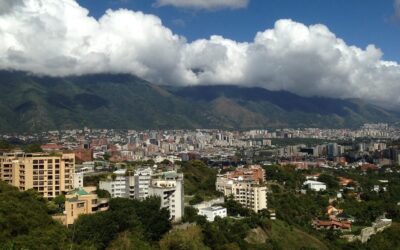“One day the spiritual director asked Chiara: ‘When in his life did the Lord suffers the most?”
“I suppose in the Garden of Olives”.
“No. In my opinion he suffered the most on the cross when he cried out: ‘My God, my God, why have you forsaken me?’ (Mt 27,46; Mk 15,34)”.
He left, and Chiara speaking with Dori (one of her students, and among the first to follow her, editor’s note) and later with the others, began to focus her love – and her studies – on that cry: on that moment of anguish in which Christ felt abandoned even by the Father, for whom he had become man.
“I am convinced that Jesus forsaken will be the ideal that will solve the world’s problems: it will spread to all corners of the earth.”
Year after year, this conviction would have been consolidated in all kinds of trials, thanks to which her ideal was taking root among humankind.
Thus, Jesus forsaken became Chiara’s love. And it became the love – the ideal, the goal, the norm – of the Work of Mary (or Focolare Movement, editor’s note).
 One day she explained to us: “If when I am old and dying, the youth come to ask me to define in brief our ideal, I will reply with a feeble voice: Its Jesus forsaken!”.
One day she explained to us: “If when I am old and dying, the youth come to ask me to define in brief our ideal, I will reply with a feeble voice: Its Jesus forsaken!”.
Source: “It was a time of war…”, Chiara Lubich – Igino Giordani, Città Nuova Ed., Rome, 2007, pp. 122-123.




0 Comments